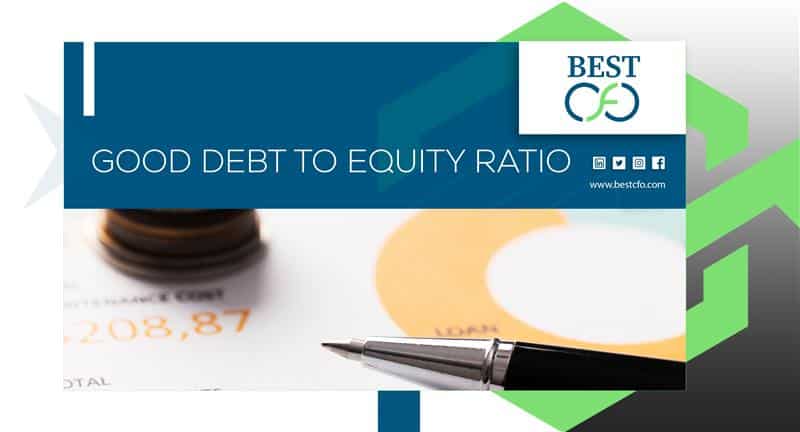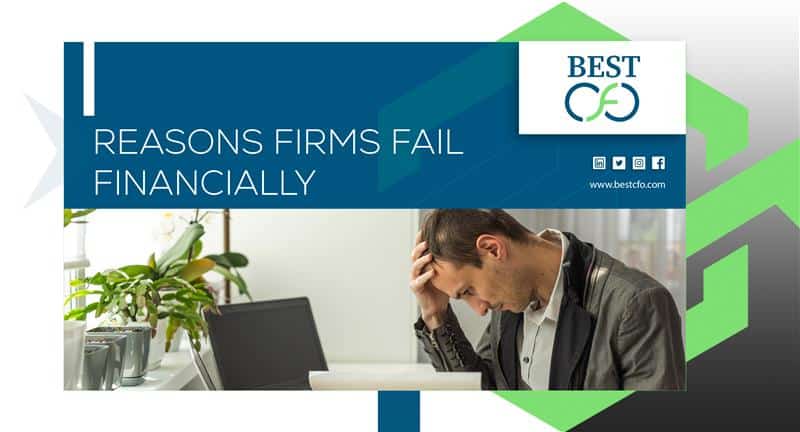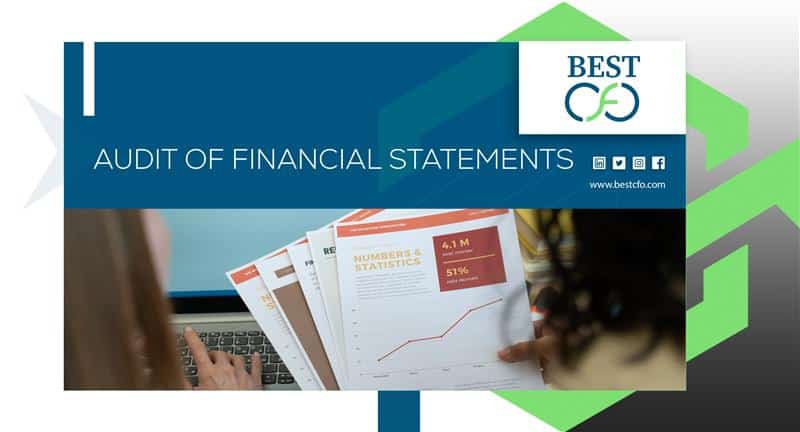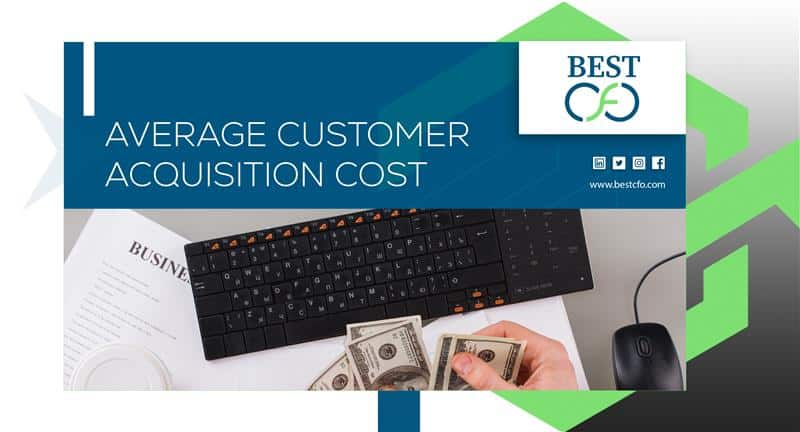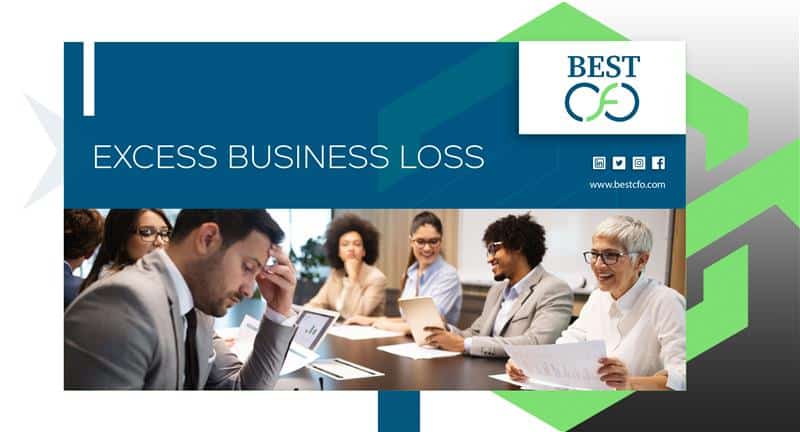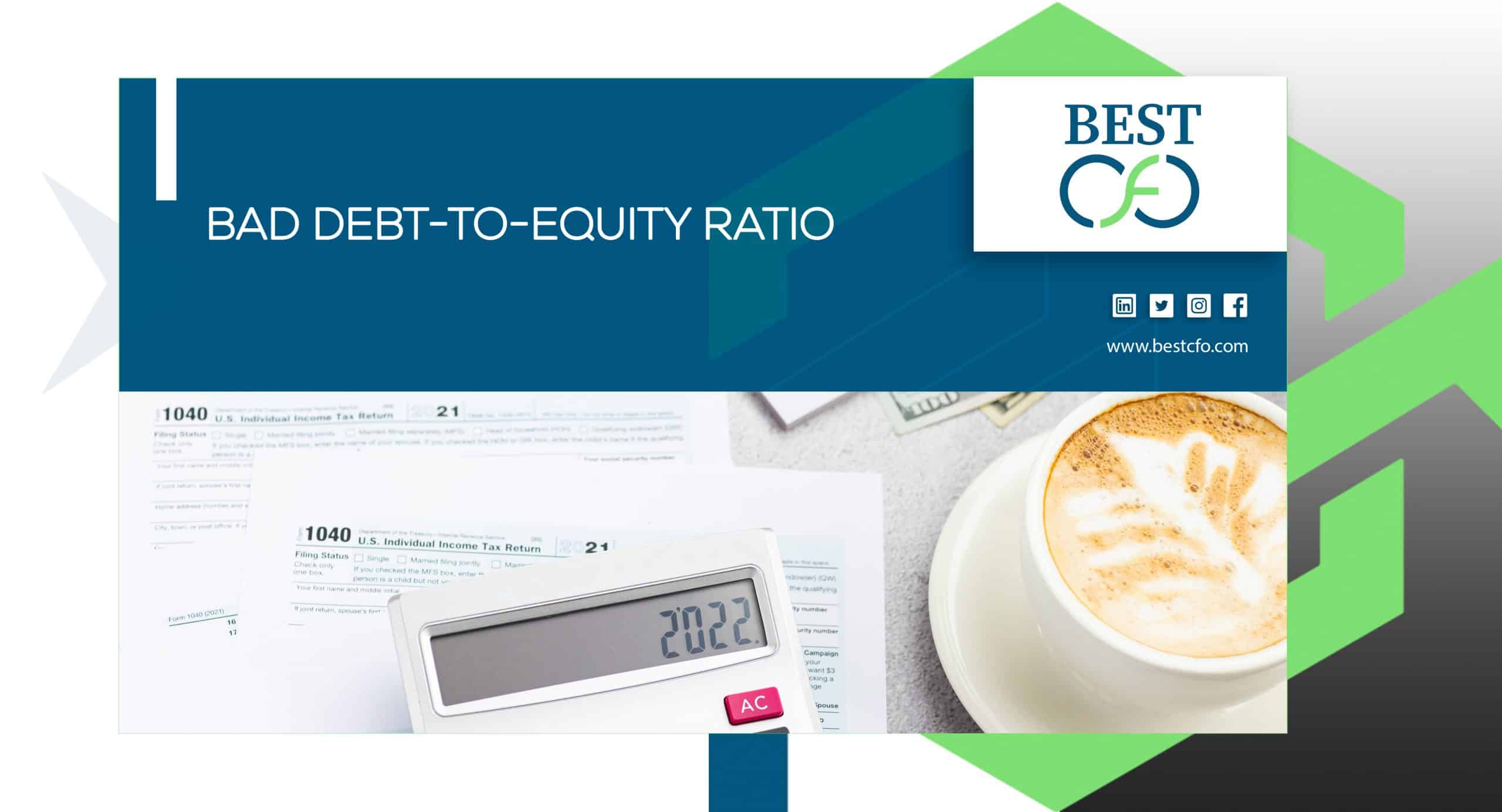
|
Getting your Trinity Audio player ready...
|
Non-Profit CFO Services: Empowering Mission-Driven Organizations with Strategic Financial Leadership
Financial challenges are especially unique in non-profit organizations, where the need for mission fulfillment and financial viability must be equally addressed. Unlike for-profit companies, non-profits must find their way among a set of funding streams, comply with numerous and complex laws and at the same time present clearly and accountably to the donors who are the lifeline of these organizations. A CFO is the one who holds the key to solving these numerous dilemmas. Whether the CFO service is in-house or external, the CFO leads a non-profit organization through the treacherous financial landscape, makes the organization compliant, and contributes to the organization’s growth.
The Special Financial Challenges of Non-Profit Organizations
The finances of non-profits are characterized by several financial challenges that both differentiate them from, and contrast them with, business counterparts:
- Multiple Revenue Streams: Using mostly grants and donations as their source of income, non-profit entities also enjoy the income from membership fees and program revenue. To deal with such dual income sources, necessary is the proper management of the income received and the thorough keeping of the records.
- Compliancy with the Law: According to the law, non-profits must be mindful of what they spend, if the company is of a certain size. In the USA, organizations are required to file Form 990 with the IRS, which is a tax-exempt organization information.
- Scarcity of Money: Keeping in mind that the operation is always on a tight budget, a good plan and constant surveillance are the ways forward to ensure the wise use of the organization’s resources harmoniously with the organization’s mission.
- Transparency and Accountability: Gaining the trust of the stakeholders and donors requires a clear presentation of financial information and regular reporting on the utilization of funds.
The Role of CFO Services in Non-Profit Organizations
Non-profit CFO services consist of a variety of the functions that are intended to meet the specific financial demands of such organizations:
- Strategic Financial Planning: Construction of long-term financial plans that align with and support the organization’s mission and vision.
- Budgeting and Forecasting: Formulating and maintaining budgets, predicting the future financial performance, and figuring out the adjustments when needed.
- Financial Reporting: The timely and accurate preparation of financial reports for both internal use and external stakeholders including donors and the regulatory bodies.
- Risk Management: Recognizing and alleviating financial risks by adopting and implementing the necessary controls.
- Compliance Oversight: Making sure adherence to accounting standards, tax laws, and other regulatory requirements.
Benefits of Outsourcing CFO Services for Non-Profits
Some non-governmental organizations, particularly the smaller ones, might still be unable to operate a full-time CFO due to the absence of the resources to employ such personnel. However, by outsourcing the CFO, a company can eventually gain in a multitude of ways:
- Cost Efficiency: Access to expert financial advice at a much lower cost than hiring an executive on a full-time basis.
- Scalability: The services provided can be modified to the size and complexity of the organization, giving one the flexibility to meet the needs at a given time.
- Outside Help: Companies often opt to engage outsourced CFOs who are cross-sector knowledgeable, as they bring in the latest views and trends.
- Mission Matters: The financial part of the organization is well managed, and key decision-makers can be full force focused climate-changing activities.
How to Lead CFO Services Productively in Non-Profit Organizations
To harvest the benefits of financial stewardship the best, non-profits have to follow the steps listed below:
- Ascertain Financial Needs: Level the complexity of the company’s financials and find the parts where tapping CFO assistance would be an added value.
- Lay down the Range of Services: Apart from the function which could be budgeting, reporting, or compliance, the CFO will be the person to take care of, etc. Select the most appropriate practice: explicitly list the work to be done by the Red supreme being or delegate the work of the Red supreme being.
- Pick the Perfect Match: The CFO provider to be appointed must be familiar with the not-for-profit sector and have a track record of successful engagements.
- Create Direct Communication Line: Through regular interactions with the CFO and with the top management, you can ensure that financial objectives are consistent.
- Keep Measuring and Gently Flexing: Make sure to evaluate the performance of CFO services on a regular basis to stay in line with the constantly changing needs of the organization.
The Case: When CFO Services Saved a Failing Non-Profit Organization
In this case, we will find out how some financial professionals managed the turnaround of an organization deeply easy and genuine.
Sector: A relatively medium-sized green non-profit organization in Oregon Challenge:
The continued expansion made it so that the donations and their use were not apportioned well. The organization started to feel tired of donors, had inconsistencies in cash flows, and were not in compliance with IRS Form 990 regarding some of their filings. Solution:
The non-profit worked with a chief financial officer from an accounting advisory firm that mainly handles charity organizations.
Key Steps Taken:
- Conducted a detailed analysis of the sources of income, the costs, and the financial operations.
- Elaborated a strategic plan for a good number of years ahead by means of a financial toward the desired direction and program goals.
- Unified the grant management systems and put up a donor reporting dashboard with the aim of being more open about the accounting information to the contributor of the same.
Provide a monthly financial report for the board with at least three formats: income, variance analysis, and forecasts.
Result:
- Restored donor confidence with clear, transparent reporting.
- Improved cash reserves by 30% within a year.
- Passed their next IRS audit with no flags.
- Secured a $1M federal grant due to improved financial management practices.
Must-Have Features in Top-Tier Non-Profit CFO Services
To truly benefit from non-profit CFO services, organizations must look for the following capabilities:
- Fund Accounting Expertise
- Unlike standard accounting, fund accounting focuses on accountability rather than profitability.
- CFOs must track how every dollar is restricted or unrestricted, ensuring compliance with donor and grant regulations.
- Budget Versus Actual Tracking
- This process allows the board and executive team to compare projected spending with actual expenditures.
- It’s essential for forecasting and ensuring program funds aren’t misallocated.
- Internal Controls Implementation
- Non-profits must guard against fraud, misuse of funds, or financial mismanagement.
- Strong CFO services implement segregation of duties, approval workflows, and system checks.
- Audit-Readiness
- Many non-profits undergo audits annually or when applying for federal/state funding.
- A non-profit CFO ensures all documentation is audit-ready and compliant with GAAP and IRS standards.
Choosing Between In-House vs. Outsourced CFO Services
In-House CFO:
- Suitable for large non-profits with a high volume of financial activity.
- Ensures on-site availability and deep immersion in the organization.
- Comes with higher overhead costs including salary, benefits, and office infrastructure.
Outsourced CFO:
- Ideal for small-to-mid-sized non-profits or those scaling operations.
- Offers flexibility, fractional expertise, and access to a team with specialized experience.
- Often includes bundled services: financial reporting, board presentation support, and grant compliance tracking.
BestCFO is a top example of a provider offering tailored outsourced CFO services with deep expertise in non-profit financial strategy, real-time reporting, and tax compliance.
Advanced Financial Strategies for Non-Profits Using CFO Services
Let’s go a level deeper. Non-profit CFO services can transform an organization’s long-term viability using advanced techniques.
Cash Flow Forecasting Models
Using tools like rolling 12-month forecasts, CFOs can help prevent shortfalls and optimize restricted fund usage.
Program Profitability Analysis
Your CFO will evaluate the return on mission investment—not just revenue versus expense, but how effectively each program delivers impact per dollar.
Scenario Planning
In volatile donation environments (e.g., post-COVID), scenario planning is essential. CFOs prepare models for:
- 20% donation drop
- Government grant delays
- Emergency program expansion
Strategic Reserve Planning
CFOs help determine the right operating reserve target—often 3 to 6 months of expenses—and build towards that buffer.
Compliance, Taxation & Regulatory Navigation
CFOs aren’t just about numbers. They’re your front line for IRS, GAAP, and local compliance.
- Form 990: A missed checkbox or misclassified revenue can trigger penalties or damage your rating on sites like Charity Navigator.
- State-Level Filings: Every state has different non-profit compliance rules, especially for charitable solicitation registration.
- Unrelated Business Income Tax (UBIT): CFOs ensure your non-profit doesn’t trigger this tax through side ventures or commercial activities.
BestCFO specializes in navigating these regulatory minefields with pre-built compliance checklists, tailored for 501(c)(3) and 501(c)(4) organizations.

Bonus Template: Monthly Financial Dashboard for Non-Profits
A powerful tool your CFO can create:
Metric | Target | Actual | Variance | Notes |
Monthly Revenue | $50,000 | $47,300 | -$2,700 | Pledge delays |
Program Expenses | $30,000 | $28,000 | +$2,000 | Volunteer boost |
Admin Overhead | <15% | 13% | YES | On track |
Cash on Hand | 3 mos | 2.5 mos | NO | Reserve dip |
Use dashboards like these in board meetings or grant applications.
Board Collaboration and Financial Literacy
A great CFO doesn’t just produce reports—they educate board members.
- CFOs from BestCFO conduct quarterly financial literacy sessions.
- They provide plain-language summaries, connecting financial data to mission metrics.
- Result: More informed strategic decisions and greater fiduciary accountability.
Integrating Technology in Non-Profit CFO Services
Modern CFOs leverage powerful tools to maximize efficiency and insight:
- QuickBooks Non-Profit Edition or Sage Intacct for fund accounting
- Bill.com for accounts payable automation
- Expensify for expense tracking
- DonorPerfect or Bloomerang for fundraising integration
- Power BI for live financial dashboards
Tech-forward CFO services reduce manual errors, improve transparency, and help make data-driven decisions.
Middle Placement of Keyword Example
As more mission-driven organizations look to scale their impact, the demand for non-profit CFO services has surged. These services aren’t just bookkeeping—they’re strategic, proactive, and transformative. By integrating budgeting, compliance, and impact measurement into a single financial vision, these professionals allow non-profits to grow with clarity and confidence.
Final Thoughts: Why Non-Profit CFO Services are the Secret to Sustainable Growth
Your mission deserves more than passion—it deserves precision. With the right non-profit CFO services, your organization can shift from reactive survival to strategic growth.
These services bring:
- Transparency that builds donor trust.
- Control that reduces waste and risk.
- Strategy that turns every dollar into maximum mission impact.
Whether you’re a community center, an international NGO, or an advocacy group, partnering with a firm like BestCFO can transform your financial backbone—making you leaner, cleaner, and future-ready.
Need Help Getting Started?
Explore expert insights and practical resources at BestCFO’s blog to learn how outsourced non-profit CFO services can empower your cause, refine your strategy, and amplify your mission-driven impact.
Conclusion
Effective management of finances is a critical point for non-profit organizations to carry out their missions and trust stakeholders. CFOs in non-profits are the leaders who manage all the financial matters of the organization to not only abide by the regulations but also drive sustainable growth. It is with the help of these services that these organizations can guarantee the good health of their finances and direct all of their attention to the positive change they want to bring about in the communities.
Frequently Asked Questions About Non-Profit CFO Services
- What are the responsibilities of Non-Profit CFO Services?
The job of a non-profit CFO officer usually implies tasks such as financial planning, fund accounting, grant compliance, cash flow forecasting, budget development, donor reporting, and preparation for audits. This is more than just recording transactions and it also involves the strategic use of financial data. In addition to these services, the company such as BestCFO provides board presentation support, financial literacy training, and technology integration for real-time reporting.
- What are the reasons a non-profit organization should outsource its CFO services?
The chief financial position of an organization can easily be externalized to a small expert team of individuals who are more-oriented non-profit sector and skilled in the related field. CFO on outsourcing is feasible from the perspective of cost and it makes available the much-needed expertise across the sector and eliminate the constant spending on full-time salaries. For small to medium-sized non-profit organizations that need to enlarge their operations, optimizing the preparation of the IRS Form 990, and need to be more transparent to the donors and the receivers of the grant, it is very valuable.
- How do non-profit CFOs ensure compliance with IRS and GAAP standards?
A specialized non-profit CFO maintains compliance by:
- Ensuring accurate completion and timely filing of IRS Form 990
- Implementing GAAP-compliant accounting systems
- Monitoring Unrelated Business Income Tax (UBIT) risks
- Managing restricted and unrestricted funds appropriately
- Preparing for audits with proper internal controls
They also assist in state registration for charitable solicitations and ensure adherence to local nonprofit laws and grantor compliance terms.
- How much do Non-Profit CFO Services cost?
Costs vary depending on the organization’s size and complexity. On average:
- Fractional CFO services range from $3,000 to $10,000 per month
- Full-time CFO hires in-house can cost upwards of $150,000 annually, including benefits
Outsourced models like BestCFO offer flexible packages that scale with your needs—many even include bundled services like payroll oversight, software implementation, and monthly board reporting.
- Can a CFO help with donor retention and fundraising?
Absolutely. While CFOs aren’t fundraisers per se, their work plays a critical support role:
- By ensuring donor funds are allocated and reported transparently
- Creating easy-to-read impact reports
- Highlighting program effectiveness through financial KPIs
This level of clarity builds donor confidence, often leading to higher repeat donations and successful grant renewals.
- What’s the difference between a bookkeeper, controller, and CFO in a non-profit?
Role | Focus | Skill Level |
Bookkeeper | Day-to-day entries, receipts, payments | Entry-level |
Controller | Internal controls, reconciliations, reporting | Mid-level |
CFO | Strategic planning, forecasting, budgeting, board support | Executive-level |
CFOs guide the financial big picture—aligning budgets with strategic plans and preparing for long-term sustainability.
- Do Non-Profit CFO Services help with grant writing and management?
Yes. Many non-profit CFO service providers support grant compliance, helping:
- Track spending against restricted grants
- Maintain audit trails
- Build financial reports required by grantors
- Forecast funding gaps for future proposals
Some CFOs even collaborate with grant writers to ensure budget alignment with funder expectations.
- Can CFO services help prevent fraud in non-profit organizations?
Yes, preventing fraud is a critical part of a non-profit CFO’s role. They establish internal controls, segregate duties (e.g., separating approval and disbursement roles), and implement automated systems like BestCFO.com. Regular audits and financial reviews also help detect anomalies early.
- What kind of reports should a CFO provide to a non-profit board?
Non-profit CFOs typically provide:
- Statement of Financial Position (Balance Sheet)
- Statement of Activities (Income Statement)
- Cash Flow Statements
- Budget vs Actual Reports
- Program-Specific Expense Analysis
- Forecasting Models
- Financial Dashboards with mission-aligned KPIs
These reports help the board make informed strategic and fiduciary decisions.
- What qualifications should a Non-Profit CFO have?
Look for:
- Experience with non-profit accounting systems (QuickBooks, Sage Intacct)
- Familiarity with IRS 990, FASB standards, and grant compliance
- CPA certification (preferred)
- A track record in non-profit financial management, forecasting, and board engagement
- Understanding of tools like Power BI, Bloomerang, or DonorPerfect for integrated reporting
- How often should a CFO meet with the non-profit board?
Best practice suggests quarterly meetings, though monthly financial updates are often provided. In critical periods—such as audits, strategic planning, or fundraising seasons—more frequent CFO touchpoints with board members may be required.
- How do non-profit CFOs handle restricted versus unrestricted funds?
Restricted funds must be used for the purpose designated by the donor or grantor, while unrestricted funds can be used for general operations. A CFO ensures:
- Proper tracking in fund accounting systems
- Separate ledger accounts
- Reporting that clearly shows fund usage to prevent misallocation
- Do Non-Profit CFO Services offer help during audits?
Yes, and it’s one of their most valuable offerings. A CFO prepares your team with:
- Pre-audit checklists
- Complete documentation for every financial transaction
- Liaison with auditors
- Form 990 prep and filing
- Ensuring funder-specific compliance
With BestCFO, audit support is typically built into their annual service scope.
- Can non-profit CFOs assist during leadership transitions or crises?
Absolutely. CFOs offer continuity planning, including:
- Preparing interim financial statements for incoming leaders
- Creating transition reports
- Helping new leadership understand the org’s financial health
- Leading crisis scenario planning and risk mitigation
In times of leadership gaps or funding shocks, CFOs keep your operations grounded.
Related Posts
What Is a Good Debt To Equity Ratio: How To Calculate It?
How to Improve Your Bad Debt to Equity Ratio: A Complete Guide If you’ve ever…
What Are The Most Common Reasons Firms Fail Financially?
How To Prepare Annual Budget For A Company: An Ultimate Guide When it comes to…
How To Prepare Annual Budget For A Company: An Ultimate Guide
How To Prepare Annual Budget For A Company: An Ultimate Guide When it comes to…
Audit of Financial Statements: Guide for Business Owners
Audit of Financial Statements: Guide for Business Owners Running a business means keeping track of…
 Demos
Demos  Colors
Colors  Docs
Docs  Support
Support 



